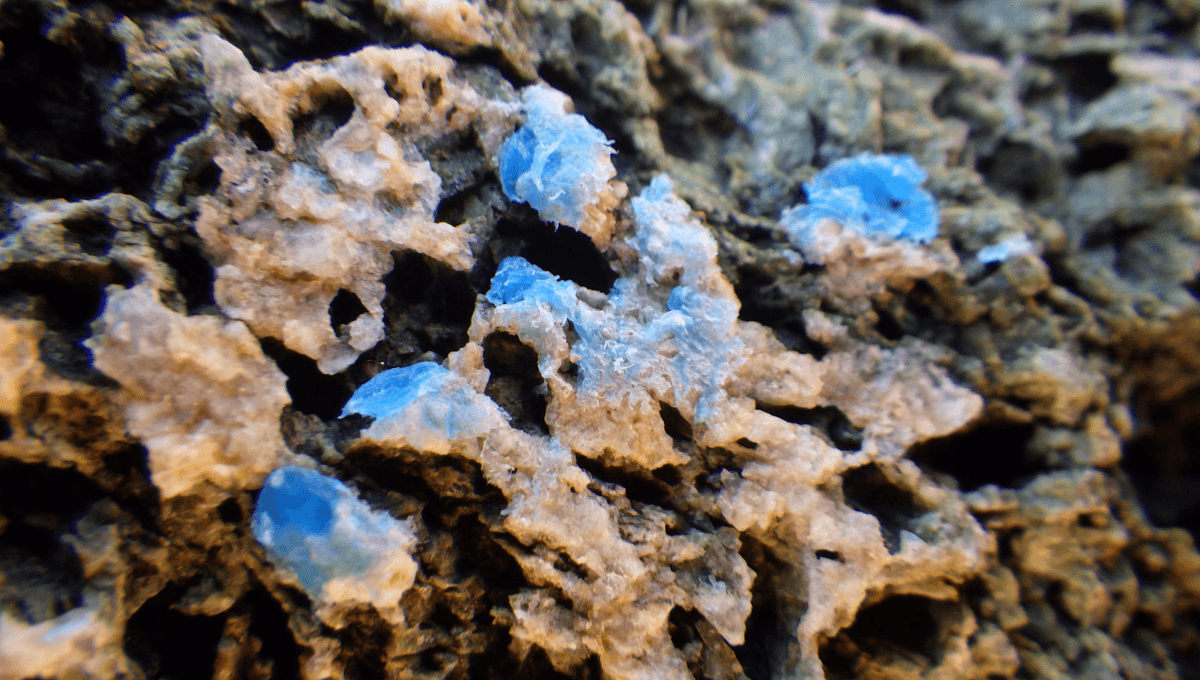
On once-pristine coastlines, scientists are finding rocks laced with plastic, formed by trash-loaded waves battering the land and fusing synthetic waste into stone.
Known as plasticrusts, the phenomenon was first reported in 2016 by Portuguese scientists who spotted unnaturally colored rocks on the idyllic island of Madeira off the northwest coast of Africa. In certain parts of the mid-intertidal shoreline, up to 10 percent of the rocks had become encrusted with flecks of polyethylene, the ubiquitous form of plastic used for soda bottles and food packaging.
Since this initial discovery, plastic rocks have been seen in a variety of different coastal regions. In 2023, another team of geologists reported the discovery of blue-green plastic rocks on a remote volcanic island off the Brazilian coast. Describing the find, Fernanda Avelar Santos, a geologist at the Federal University of Parana, told Reuters news agency: “This is new and terrifying at the same time, because pollution has reached geology.”
The plastic pollution “mainly comes from fishing nets, which is very common debris on Trinidade Island’s beaches,” Santos added. “The [nets] are dragged by the marine currents and accumulate on the beach. When the temperature rises, this plastic melts and becomes embedded with the beach’s natural material.”
Plastic rocks can come in a few different forms. In some instances, the plastic has become physically integrated into the rocky sediment. However, it’s evident that rock and plastic can chemically fuse in some circumstances, tightly bonding the two materials at a molecular level.
It’s not yet known whether plastic rocks have an impact on surrounding marine life, although researchers have pointed out that it’s likely to be affecting barnacles and other creatures that latch onto rocks.
The Portuguese researchers in Madeira reported that tiny sea snails were seen grazing on top of the plasticrust. Experiments have shown that these animals struggle to tell the difference between algae, their natural food, and plastic, raising concerns that animals could be consuming the plastic. Given the known perils of consuming plastics, this highlights another new potential threat to the wider marine ecosystem.
Whatever their impact, the presence of plastic rocks is a pretty damning indication of how prolific plastic pollution has become.
It’s estimated that there are over 171 trillion pieces of plastic in the seas, which is a gob-smacking statistic when you appreciate that plastic has only been widely used for a century.
Plasticrust is a clear sign that human activity is starting to profoundly impact the geological record. When discussing how human activity is impacting the planet, scientists sometimes use the term Anthropocene, a proposed geological epoch that describes how humanity’s actions are changing the natural world. This includes everything from nuclear residue and greenhouse gas emissions to plastic pollution.
Not everyone recognizes the term since geological timeframes usually work in colossal time scales, not mere centuries or even decades. Nevertheless, the presence of plastic-infused rock provides very vivid evidence that human industrial activity is having some impact on the planet’s geology.
An earlier version of this story was published in November 2023.
Source Link: Plastic Rocks Are A "New And Terrifying" Phenomenon Coming To A Shore Near You